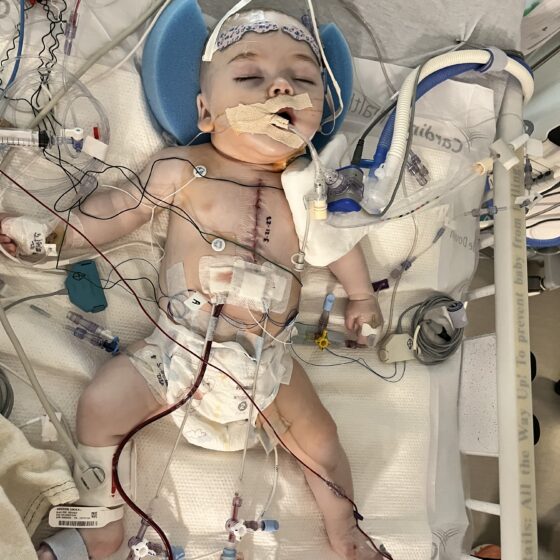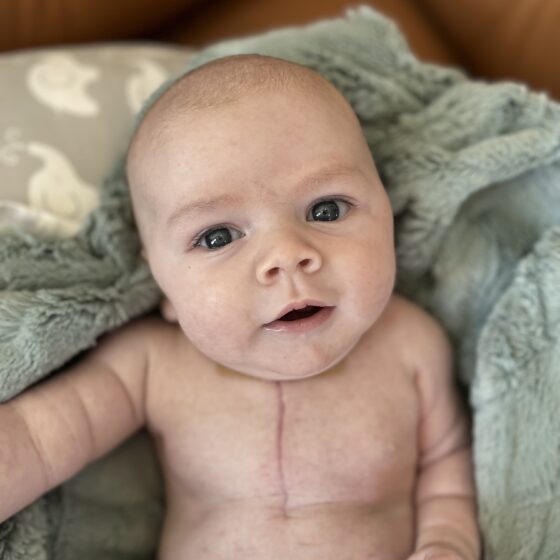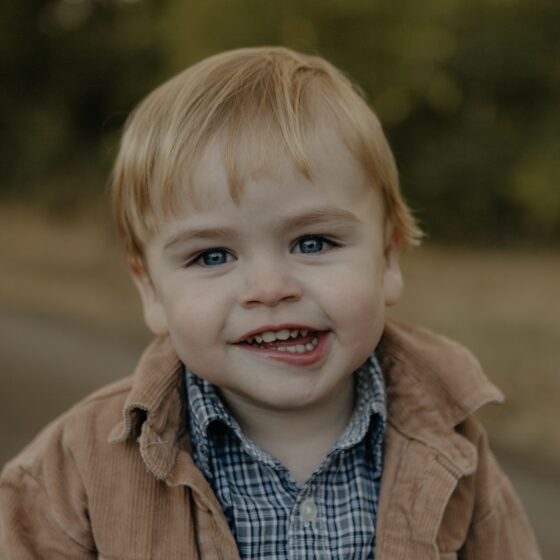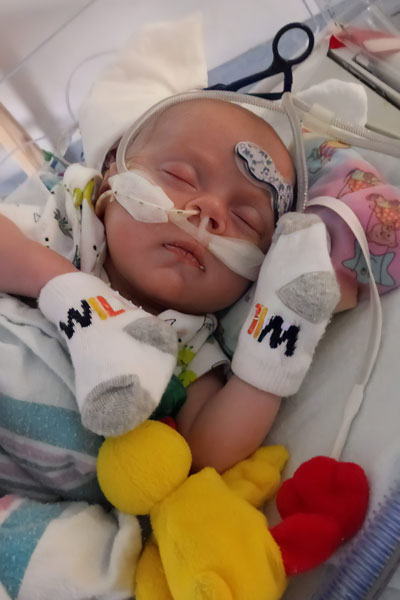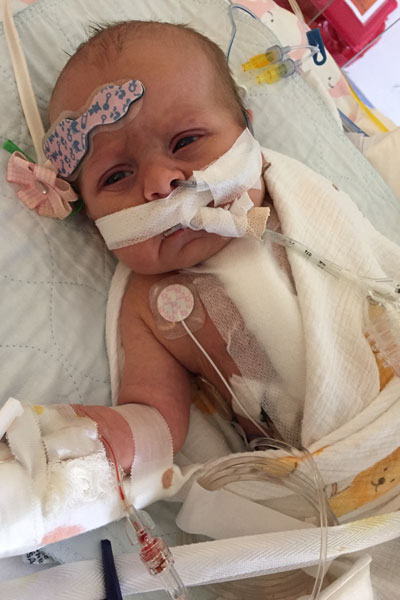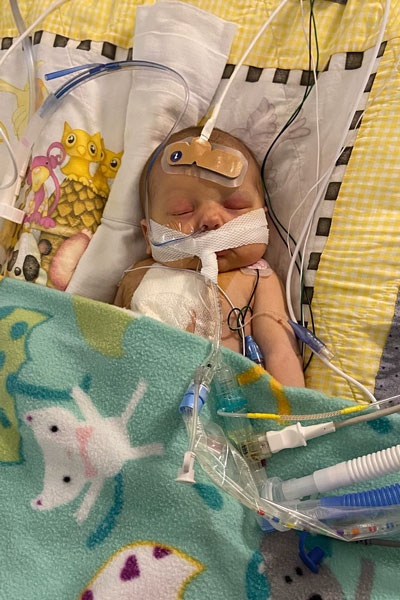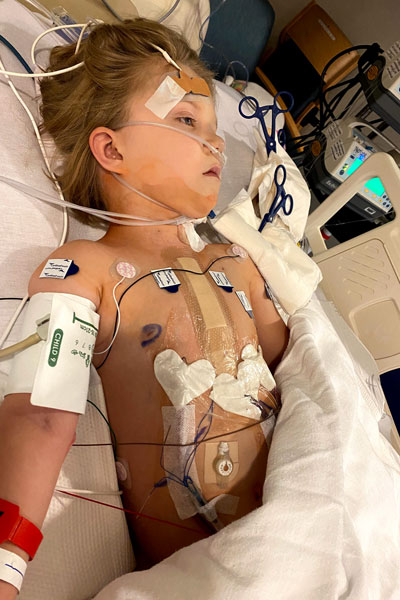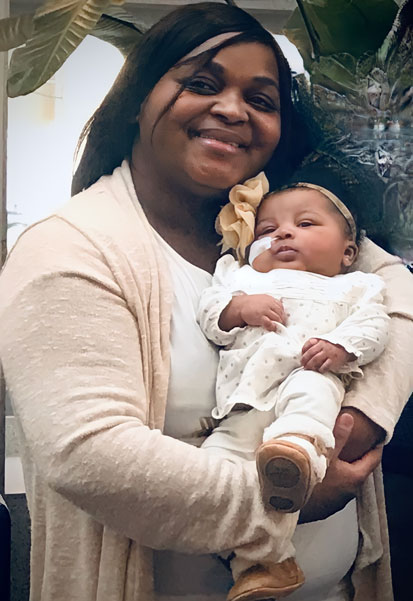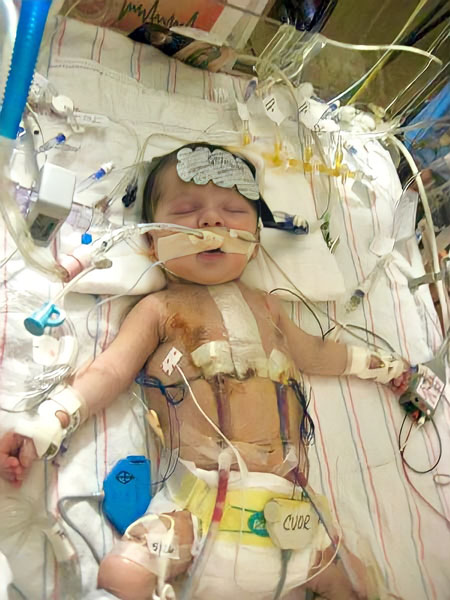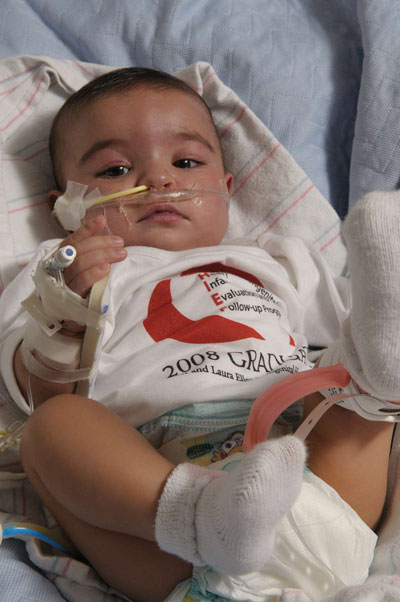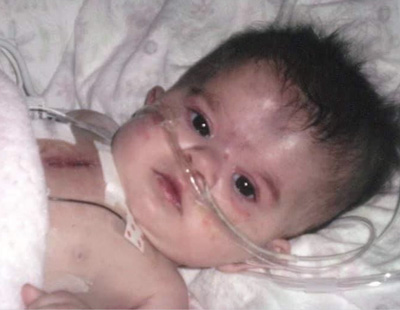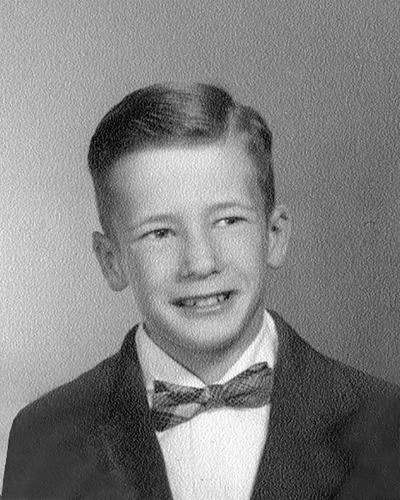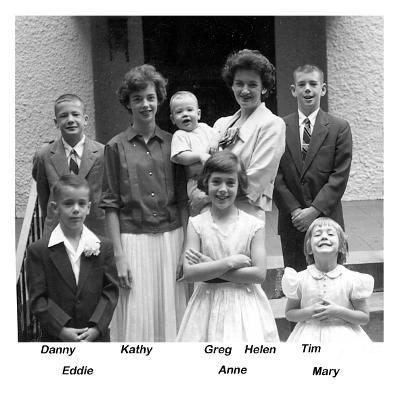LINCOLN
Lincoln, was diagnosed with hypoplastic left heart syndrome (HLHS) at 18 weeks gestation. Lincoln’s parents were asked multiple times if we wanted to terminate the pregnancy, but we decided to fight for him. When he was born, the doctors determined that they would try to keep his left side functioning; however, its size was borderline. We weren’t given much hope, but we knew it was his best chance. He had his first open-heart surgery at just five days old, during which the doctor widened his aortic arch and closed a ventricular septal defect (VSD) and an atrial septal defect (ASD). The surgery was successful, but we were told it was a waiting game and that he would definitely need more surgeries in the future.
Remarkably, he did exceptionally well for 4.5 months, and we were shocked at his progress. In January 2023, he had an echocardiogram (echo), and the results looked great. However, in February, he contracted a respiratory illness. We were admitted for a few days but reassured that it wasn’t affecting his heart. A week later, we found ourselves back in the ER, and he was admitted once again. After a few days, we were sent home.
Then, on March 14th, he woke up with difficulty breathing. He was extremely lethargic and slept all day, barely able to stay awake. I could tell he was struggling, so I took him to the hospital. They immediately sent us to Primary Children’s Hospital, where the ER was waiting for us. They conducted an echo and measured his B-type natriuretic peptide (BNP), which was over 5000. We were told that if we hadn’t brought him in, he likely would have died overnight at home.
Lincoln spent a week in the hospital, mostly unconscious, as we awaited surgery, which took place on March 21st. His mitral valve had failed, and he was too small for a replacement. The doctors were very clear that the surgery likely wouldn’t be successful and that he would probably need to be on a ventricular assist device (VAD) until he could receive a transplant. The surgery was expected to take eight hours. After four hours, we received a call that it was over, leaving us extremely anxious and fearing that nothing had worked. However, we were relieved to learn that the surgery had gone well!
When the doctor finally spoke with us, he informed us that he was able to repair the mitral valve—something that he had previously told us had a very small chance of success. Although it was only a temporary repair, it was necessary to give Lincoln time to grow big enough for a mitral valve replacement. He was six months old at that time.
Now, at 24 months old, he is thriving! While he still has significant mitral valve stenosis, his heart is functioning adequately for the moment. We are now waiting to see if his heart begins to show signs that the mitral valve is worsening. If that occurs, he will need his third open-heart surgery. In the meantime, we cherish our time as a family and pray that the next surgery will not come after such a traumatic event.


